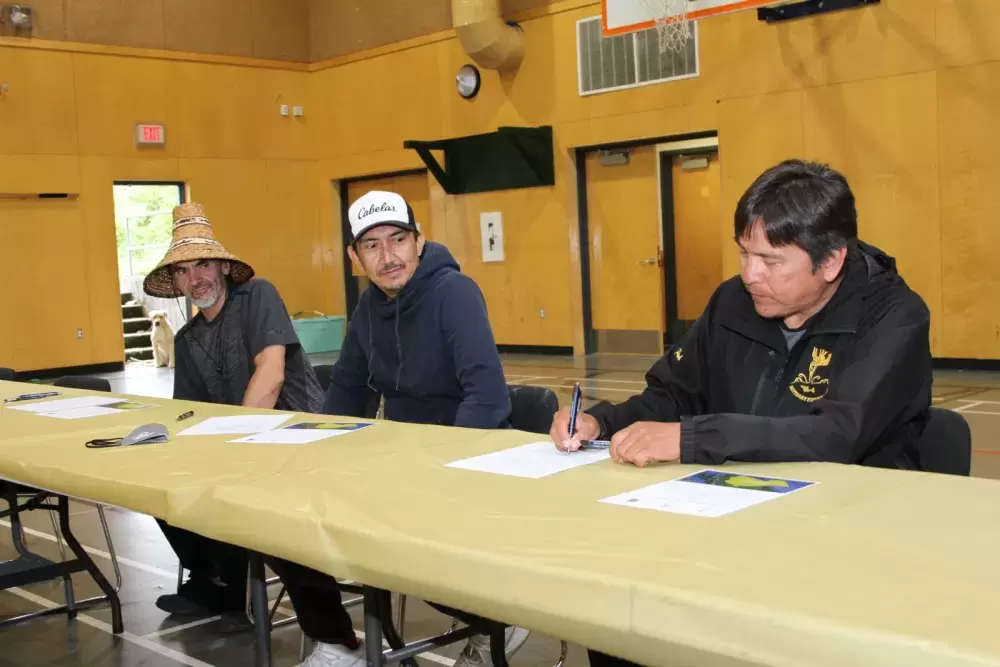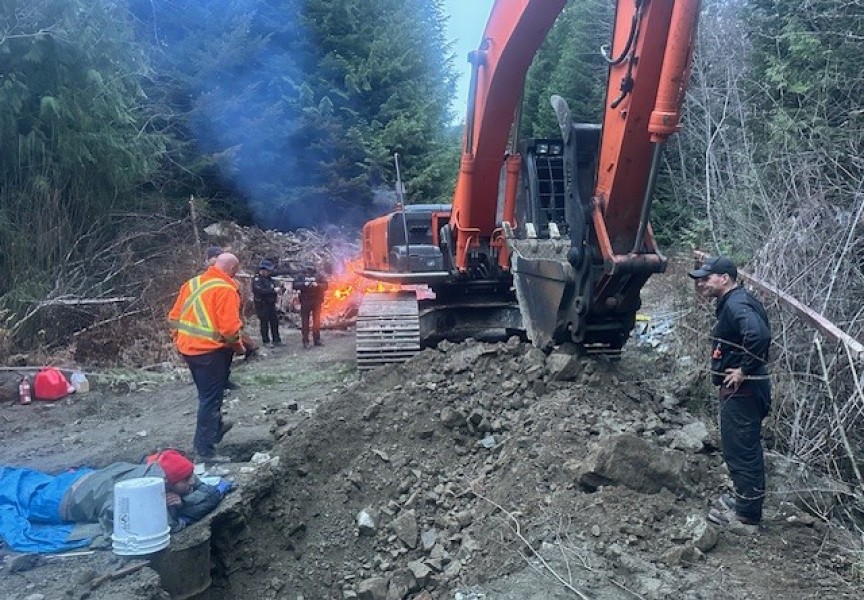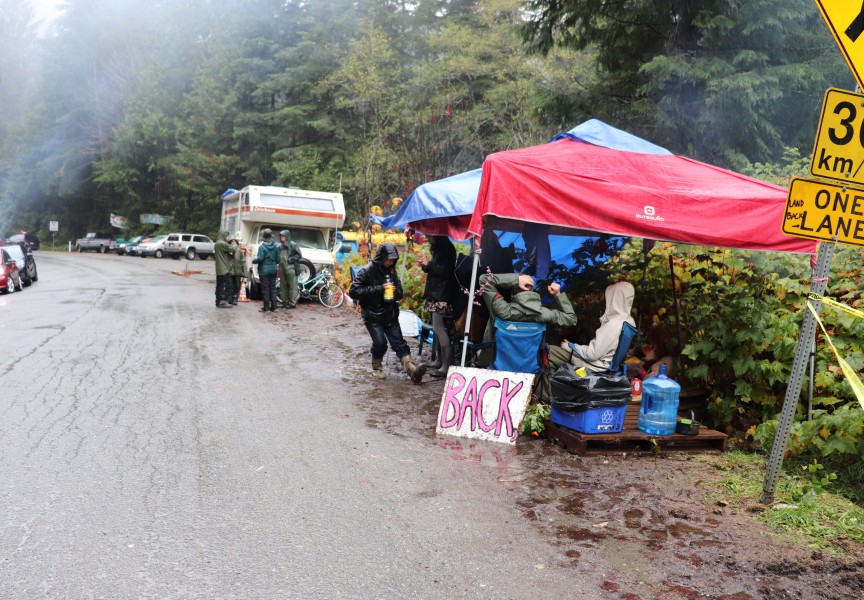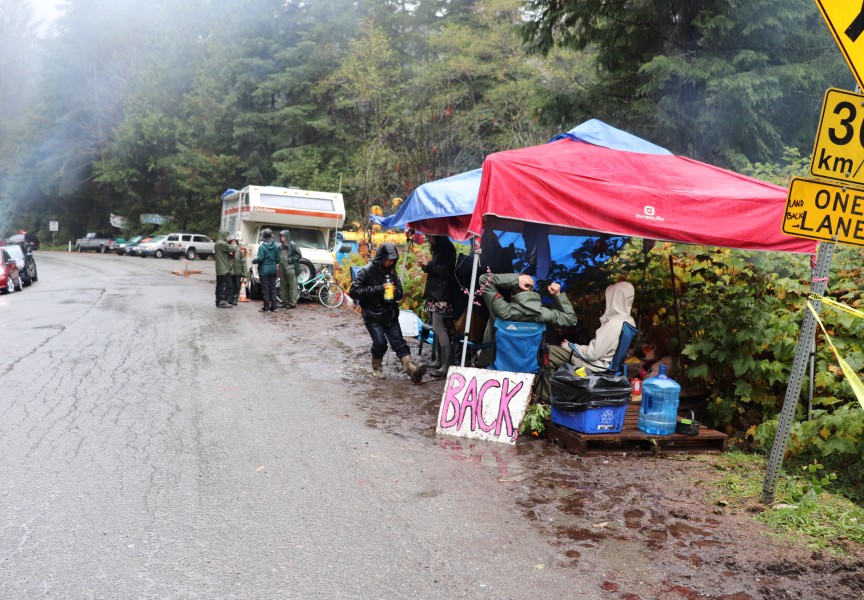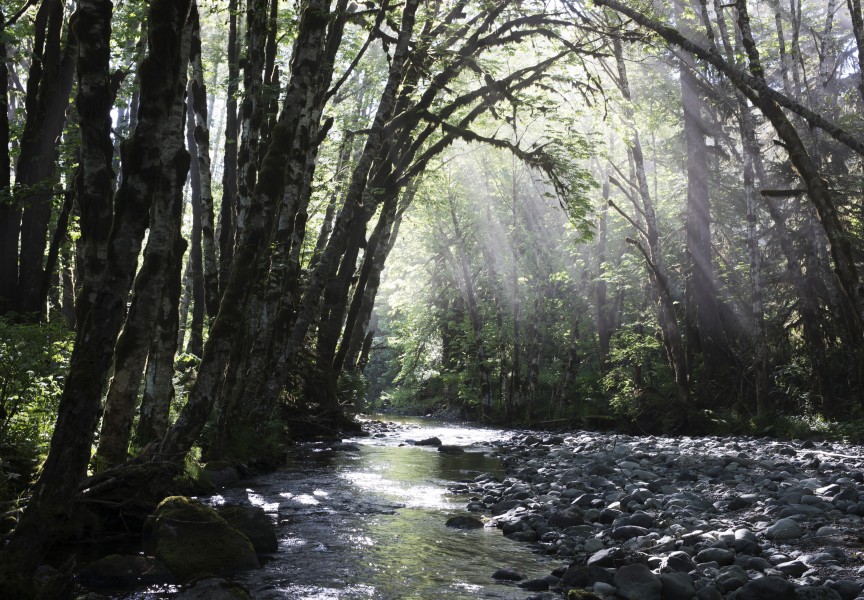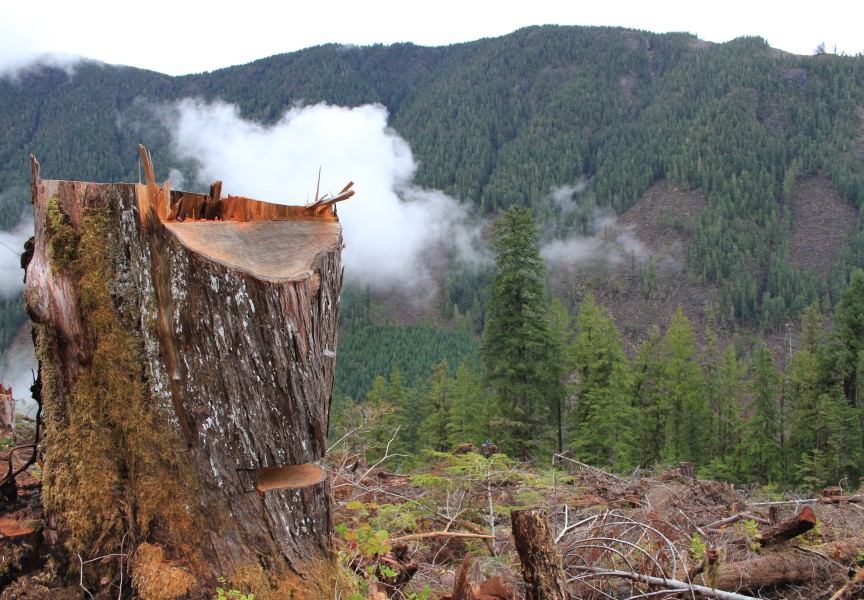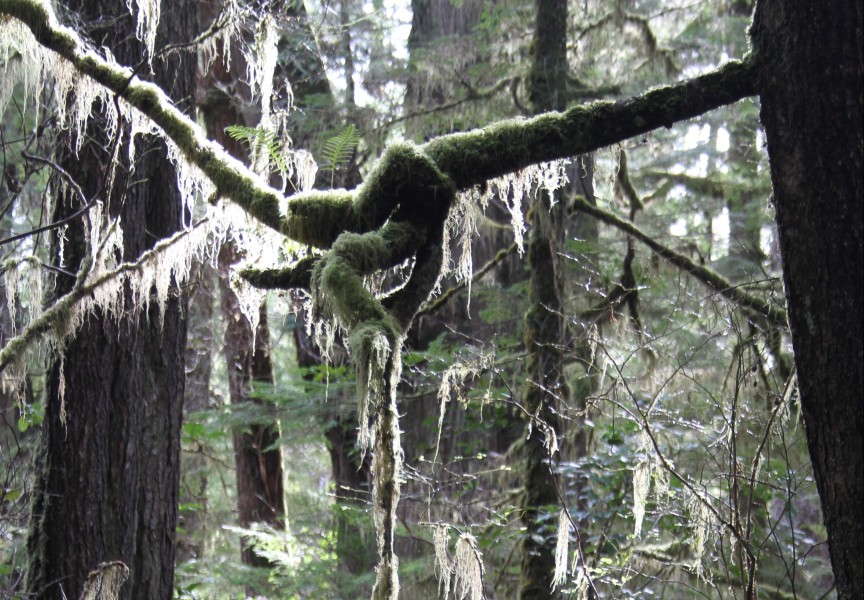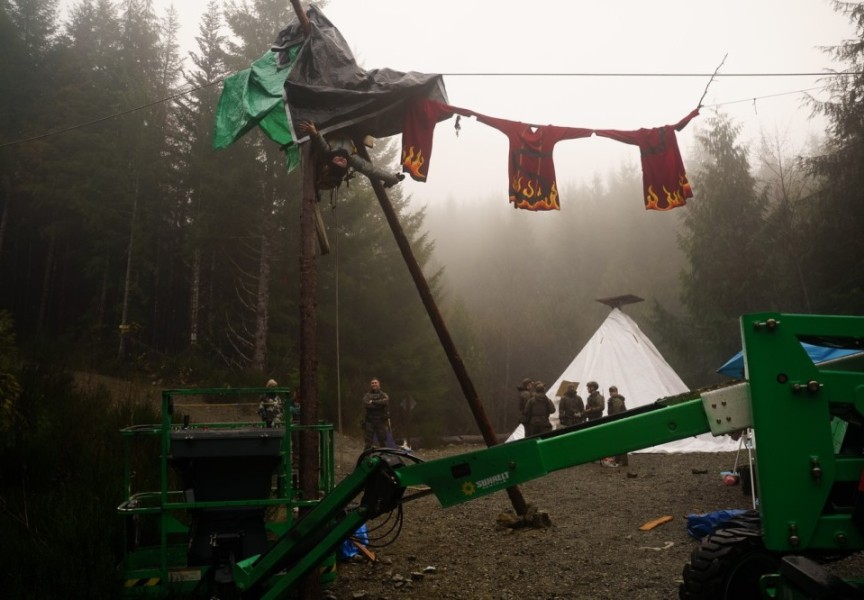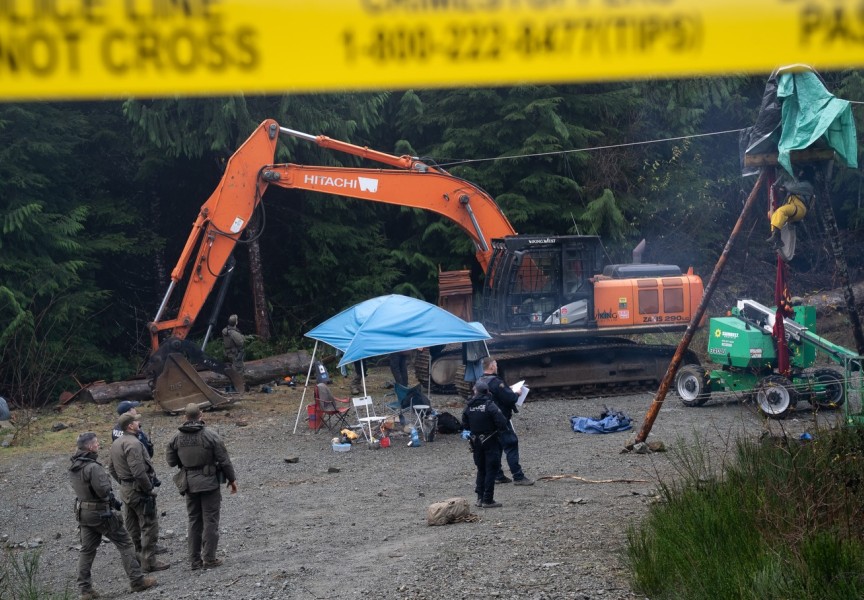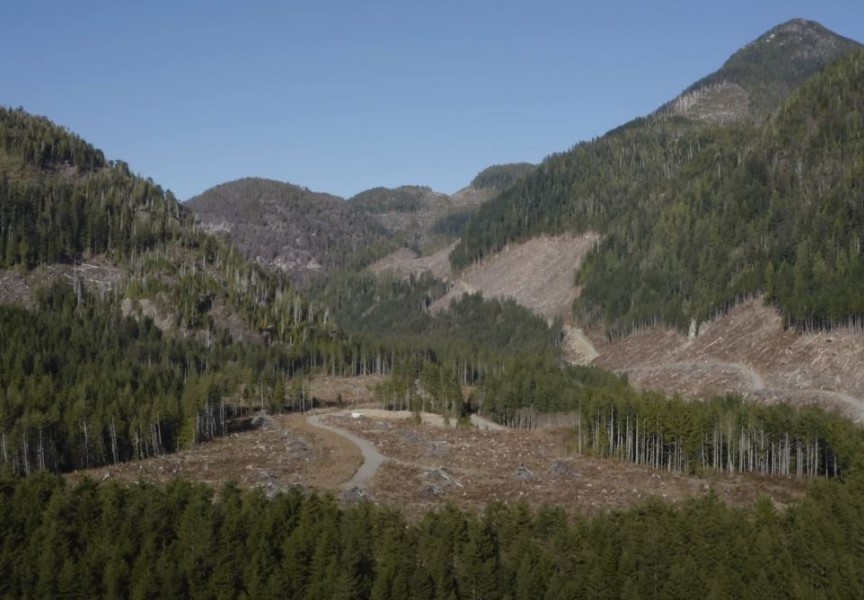As the largest anti-logging movement to hit the West Coast since the 1990s continues in southern Vancouver Island, three Nuu-chah-nulth First Nations are asserting authority over their territories.
On Friday the Pacheedaht, Ditidaht and Huu-ay-aht First Nations signed the Hišuk ma c̕awak Declaration “to take back their power over their ḥahahuułi”, according to a release issued today. The declaration pledges to end the 150-year period of the First Nations watching others decide what’s best for their lands, water and people.
On the following day the three nations gave a notice to the Province of B.C. that could end the escalating conflict around the blockades. They informed the province to defer all old-growth logging in the Fairy Creek and Central Walbran areas for two years, giving the First Nations time to assemble integrated resource management plans based on engagement with citizens.
The declaration comes as thousands have ventured to logging roads near the Fairy Creek watershed to support blockades in place since August of last year. The Rainforest Flying Squad fear that the Teal Jones Group’s tenure on the Crown forest land will harm one of the last untouched valleys of old-growth forest on Vancouver Island. On April 1 the B.C. Supreme Court ruled against the blockades, and since police enforcement began in mid-May over 170 people have been arrested.
Fairy Creek is in the ḥahahuułi of the Pacheedaht First Nation, prompting Hereditary Chief Frank Queesto Jones and Chief Councillor Jeff Jones to speak against the blockades, stating that forestry has been a vital economic and cultural practice for the nation for countless generations. At the June 4 signing Jeff Jones explained the importance of the declaration with the Ditidaht and Huu-ay-aht.
“From now on our nations will decide what is best for our lands, our waters and our resources for the sustainment and well-being of present and future generations of the three nations,” he said. “For too many years First Nations have not had jurisdiction over their traditional territory. We must have adequate resources to meet the needs of our citizens, members, for employment, housing, education, health, social and other needs.”
Jones and the other Nuu-chah-nulth leaders are troubled by the flock of visitors who have entered their territory to interfere with forestry. This has happened without asking permission from hereditary leaders, a show of disrespect for the chieftanship of each individual nation, he said.
“There is a couple of individual Pacheedaht members who are part of the rainforest group that are somewhat leading the group,” said Jones. “The individuals have their individual rights to speak on their own behalf, but they do not have the support of the nation behind them.”
The declaration was signed in Ditidaht’s Nitinaht Lake community, where Chief Councillor Brian Tate said that the document should bring an end to this disrespect of the hereditary system.
“It signifies that third-party interests cannot just come in and do as they please,” he said. “Human beings in general are allowed to have an opinion, but it’s how they convey it makes it right or wrong. That’s in relation to the protestors right now.”
“We as a nation are loggers,” said Jones. “We have two forestry partnerships in our territory, so forestry is in our blood. We benefit from revenue every year. It’s not a short-term gain, it’s a long-term gain for the whole Pacheedaht First Nation for the simple reason that we have purchased existing businesses, which then provides long-term stable employment opportunities for our people.”
While they work on their resource management plans, the Pacheedaht, Ditidaht and Huu-ay-aht ask everyone to allow forestry operations that are approved by the province and the First Nations in their territories to continue without disruption.
Days before the declaration was signed the Huu-ay-aht had already released details of its integrated resource management plan, including the need for the nation to set an appropriate annual allowable cut, protect “culturally important forests”, no timber harvesting on treaty settlement lands in 2021 and develop a strategy “that continues to value the existence of old-growth forests and monumental cedar.” In recent years the Huu-ay-aht have gained a growing ownership stake in TFL 44, a large area of Crown land tenure that covers much of their territory.
“I know we can do a better job than what is being done now,” said Chief Councillor Robert Dennis Sr. “We’ve had people coming in here for years telling us what to do and how to do it. But before they took over, what did the land look like? What did the rivers look like? They don’t look like that anymore. I think we can do things to renew that, to restore that.”
Those behind the blockades have opposed old-growth logging, but Tate noted that the Ditidaht relies on maintaining a balance between managing the forest ecosystem and profiting from harvesting.
“We already have working relationships with forestry companies and the province, and these are improving. They weren’t always perfect, but they are improving,” he said. “Any cutblocks that become available have to have a plan, and it has to be presented in order for them to receive the licence to operate in a cutblock area. They have to identify what species are in there, and what volume is in there before they even go in and log.”
The elected chief reflected on his childhood in Nitinaht Lake, where his family was supported by his father’s career as a logger.
“I grew up with the logging in my family, and it sustained our community,” Tate said. “It allowed us to have the ability to financially travel to basketball tournaments, to floor hockey tournaments as youth.”
He said the Nitinaht community relies on seasonal work through tourism, Parks Canada, fishing and the salmon hatchery, a reality that forces the First Nation to recognise the importance of forestry.
“This province was built on it, and it continues to thrive on it, and so we need to find a balance on how we’re going to maintain the forests and the old growth,” said Tate. “This community is isolated. We don’t have an economic base to develop on.”

